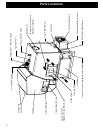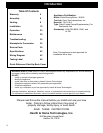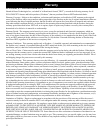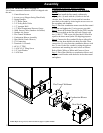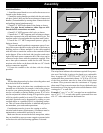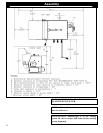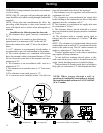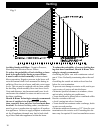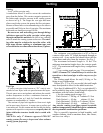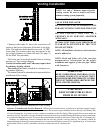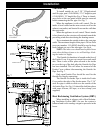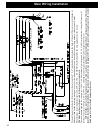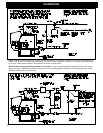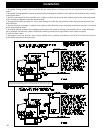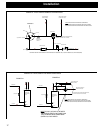
Fig. 3
Avoiding Smoke and Odors - Negative Pressure,
Shut-down and Electrical Power Failure.
To reduce the probability of back-drafting or burn
back in the pellet boiler during a power failure,
it must be able to draft naturally without exhaust
blower operation. Negative pressure in the house will
resist this natural draft if not accounted for during in-
stallation. Heat rises in a house, and leaks out at upper
levels. This air must be replaced with air from outside
the dwelling, which normally ows into lower levels.
Vents and chimneys into basements and lower levels
can become the conduit for return air and reverse un-
der these conditions.
Hearth & Home Technologies strongly recommends
the use of outside air in all pellet boiler installa-
tions, especially those on lower level and main oor
locations. Per national building codes, consideration
must be given to combustion air supply to all combus-
tion appliances. Failure to supply adequate combustion
air for all appliance demands may lead to back-draft-
ing of those and other appliances within the home.
To reduce the probability of reverse drafting dur-
ing shut-down conditions, Hearth & Home Tech-
nologies strongly recommends:
• Installing the pellet vent with a minimum vertical
run of 5 feet. Preferably terminating above the roof
line.
• Installing the outside air intake at least four feet
below the vent termination.
To prevent soot damage to exterior walls, and to pre-
vent re-entry of soot or ash into the house:
• Maintain specied clearances to windows, doors
and air inlets, including air conditioners.
• Vents should not be placed below ventilated softs.
Run the vent above the roof.
• Avoid venting into alcove locations.
• Vents should not terminate under overhangs, decks
or onto covered porches.
• Maintain minimum clearance of 12” from the vent
termination to the exterior wall. Extending this dis-
tance may be required if visual accumulation occurs.




